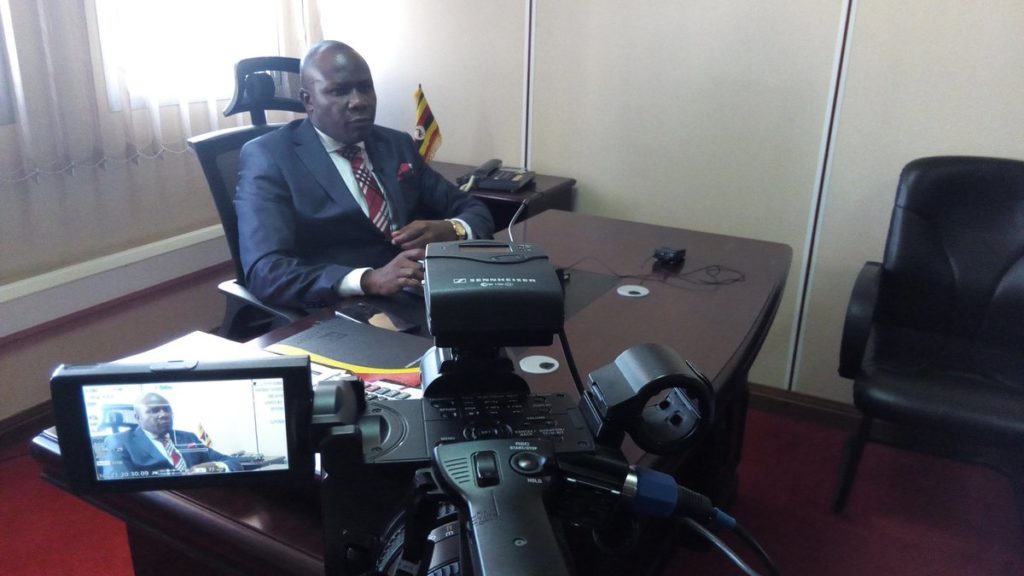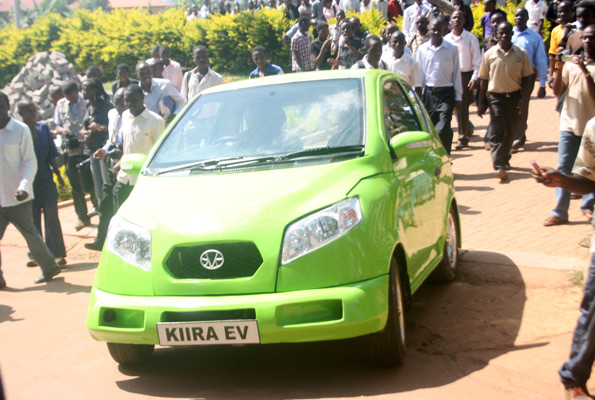Kiira Motors Corporation (KMC) is a Ugandan automobile manufacturing company owned by the government of Uganda and Makerere University, launched in 2011.
But since President Museveni launched the vehicle project, it was an unfunded priority but this year government has availed the funds to enable works on the project to commence.
Robert Kafeero Ssekitooleko, the chairperson Parliamentary committee on Science and Technology has said. During a live twitter chat he confirmed the development saying the project is now ready to start after government approved funding of over Shs 140 billion to advance its development through the phases.
The plant sits on 100 acres of land situated at the Jinja Industrial and Business Park and expected to have a production capacity of over 5,000 cars per year.
“There’s now enough preparation which Uganda is doing to take this project forward. At commercial stage, the assembly plant will be fitted with material handling and plant logistics, equipment and tools among others.” He said.

He further stated that the setup of a 33kv electric line to the project base for motor vehicle assembly is ongoing, to facilitate progressive work and the works on the extension of electricity and water to the Kiira Motor Vehicle plant will be complete by end of July 2018.
KMC developed Africa’s first electric vehicle in November 2011, Africa’s first hybrid vehicle in 2014 and Africa’s first solar electric bus (Kayoola Solar Bus) in February 2016.
On the market of the vehicles to be produced, Kafeero says Kiira motor vehicles will be competitively priced given local content addition and the reduction in production costs due to local chain value addition will lower price of their products, making them competitive on the market.
He made a reference to the batteries that late Mulwana began manufacturing, citing that government support to him with a tax holiday thus subsidizing the cost of his product, and attracting market.
Kafeero challenged Ugandans to end the mentality of not purchasing Ugandan made products. This initiative would develop Uganda’s production and manufacturing sector.
“The need to reverse the trend from many vehicle imports to an increase in the purchase of cars manufactured in Uganda. We shall have to make sure that Kiira Motors competes favourably with imported cars.
Kiira Motor EV is the first electric vehicle in Africa so its mass production will attract market. Ethiopia is already assembling and we should compete with them.
The Nissan assembly project in Kenya shouldn’t be a threat to the Kiira Motor Vehicle assembly plant, but rather a challenge to compete with, so as to put the brand on the local, regional and international market.
Taxation of imported vehicles is usually high, but with cars manufactured here at home, they will be much more affordable for Ugandans because they will not have to incur a lot of taxes when purchasing them.” He said
Meanwhile, Kiira Motors is expected to create over 900 jobs at the initial stage, 2,000 direct jobs when fully operational and 12,000 indirect jobs helping reduce on the unemployment rate.
The commercialization of the Kiira Electric Vehicle Project is expected to catalyse investment by small and medium enterprises in the manufacture of vehicle parts, components and autonomy systems (brake pads, seats, bolts, nuts, bumpers vehicle electronics and navigation system).
On the Bio-safety Bill:
Kafeero said, “I pray that Ugandans accept that we get the Bio-safety and Bio-technology (GMO) Bill. We can’t leave our borders being porous for anyone to bring in things that affect our society.”
“The Biosafety bill hasn’t gotten much attention because Parliament has prioritized the budget process. But hopefully next week, we shall be able to have the topic on the order paper, discuss it and vote on whether to pass it or not.” He concluded.








